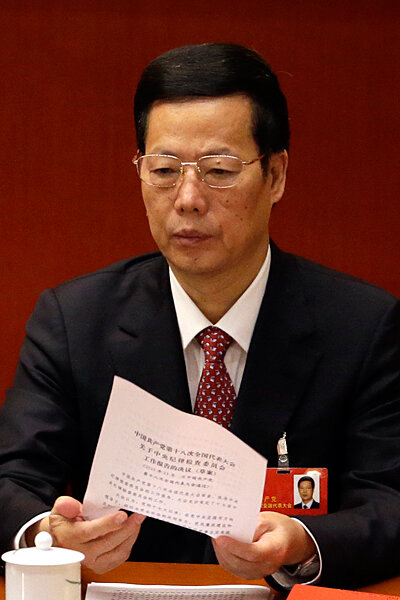Zhang Gaoli is a somewhat colorless, spare, ascetic looking man about whom not a great deal is known, other than that he seems to owe his status as a likely Standing Committee member to patronage from former president Jiang Zemin, who has exerted considerable influence over the choice of China’s next leaders.
Mr. Zhang is currently party boss of Tianjin, a booming port city in Northeastern China which enjoyed 16.4 percent economic growth last year. Previously he had held the same party job in Shenzhen and Shandong, two other prosperous east coast economic success stories.
He fed Tianjin’s growth with massive investment, fueled by heavy debt, a familiar pattern in China’s provinces, where leaders are judged by economic growth rates and state-owned banks fund projects that will boost growth figures without always worrying too much about their long-term profitability.
That, however, is not a sustainable growth model, China’s leaders have agreed. The next generation of Standing Committee members will have to foster a new model, built on higher personal consumption rather than capital investment or exports, Chinese economists insist.
Zhang is an economics graduate who spent a number of years working for state-owned oil companies before going full time into politics. He has kept his head down throughout his career, rarely talking to reporters. After the fall of Bo Xilai, who had touted a “Chongqing model” of economic development, Zhang made a point of publicly insisting that there was no “Tianjin model” and that cadres should stick to the party Central Committee’s line.








